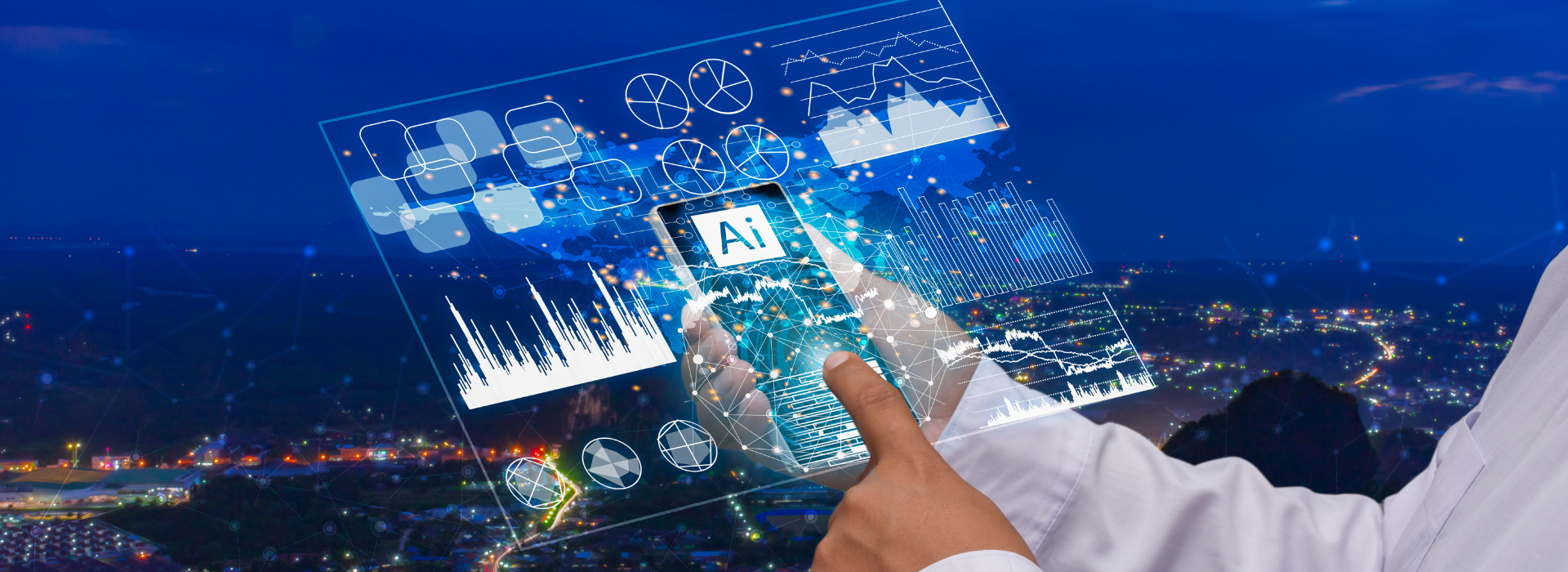Is AI permanently changing the job market?
Maddy Laing • November 24, 2024
Is AI permanently changing the job market?
Artificial intelligence (AI) is transforming industries across the globe, and the UK is no exception. With rapid advancements in AI, the job market is facing both challenges and opportunities as businesses adapt to these new technologies. According to a recent survey by TeamViewer, while 74% of UK executives believe AI will significantly boost productivity by automating tasks and streamlining workflows, only 10% of businesses have fully implemented generative AI, with 69% of top business leaders making it a priority for 2025. As AI continues to grow, it is essential to understand how these changes are reshaping employment across different fields.
Certain industries, such as finance, healthcare, and retail, are seeing significant changes due to AI integration. In finance, AI is being used for algorithmic trading, fraud detection, and even powering customer service chatbots. In healthcare, AI is playing a crucial role in diagnostics and predictive analytics, helping improve patient outcomes. Meanwhile, in retail, AI is enhancing personalised marketing and inventory management. Despite these improvements, there are growing concerns about job displacement and the skills required to thrive in an AI-driven world.
The potential impact of AI on employment is not limited to specific sectors; it affects the entire workforce. While AI can handle repetitive and data-driven tasks, it also requires workers to adapt by developing new skills. Many roles that are based on routine processes are at risk of automation, but AI also creates opportunities for new job categories, particularly in areas like data science, machine learning, and AI ethics. This dual effect makes it crucial for workers to focus on upskilling and reskilling to stay relevant in an AI-influenced job market.
“AI has really changed the job landscape.”
During a recent UK Market Update, Managing Director Liz Jones, and Senior Recruitment Consultant Maddy Laing, discussed the impact of AI on the job market and how it has changed employment dynamics across various sectors. The conversation highlighted both the benefits and the challenges posed by the rise of AI in the workplace.
Maddy Laing shared how AI has made a significant impact on industries, noting, "AI has really changed the job landscape. It's taking over repetitive tasks and streamlining workflows, bringing more data-driven decisions into play across different industries." She elaborated on how finance, healthcare, and retail have all benefited from AI advancements. In finance, for instance, AI is used for algorithmic trading and fraud detection, while in healthcare, it assists with diagnostics and monitoring patients.
However, the discussion also covered the potential job losses resulting from increased automation. Maddy explained, "Definitely jobs have been replaced, especially those that involve more repetitive or routine tasks. But at the same time, AI has opened up new opportunities and huge areas for development, like roles for data scientists, machine learning engineers, and even AI ethics specialists." This sentiment was echoed by Liz, who highlighted how the manufacturing sector, in particular, has faced job cuts due to automation, whereas areas like healthcare and IT are growing rapidly as a result of AI integration.
Liz Jones added that Brexit and the COVID-19 pandemic have played a role in reshaping the job market, with AI acting as both a disruptor and an enabler. "It's not just about automation or job displacement, it's about creating a workforce where AI works in conjunction with us," she said. The idea of augmented roles, where employees work alongside AI, is a key trend that both experts believe will continue to grow. This shift allows workers to focus more on strategic thinking, creativity, and forward planning while AI handles more routine and data-heavy tasks.
Maddy also emphasised the importance of adapting and upskilling in an AI-driven job market. "The AI wave is pushing employers and employees to learn new skills," she noted. "Data literacy, machine learning basics, and understanding AI are becoming crucial skills. At the same time, problem-solving, critical thinking, and adaptability are more important than ever." As businesses increasingly adopt AI, the demand for hybrid roles—those that combine technical skills with soft skills—is on the rise. This trend will require job seekers to be more versatile and prepared to work with AI tools.
The conversation concluded on a positive note, with both Liz and Maddy agreeing that AI's impact on employment will ultimately create new opportunities. "AI is fundamentally reshaping the employment landscape," Liz said. "It's about embracing change, learning, and development. AI is just the latest evolution, and it's going to be a big enhancement to the way we work."
Preparing for an AI-Driven Future: Key Strategies
To successfully navigate the challenges and opportunities presented by AI, businesses and workers must take proactive steps to adapt to the changing job market. Upskilling and reskilling are crucial for ensuring that employees have the skills needed to thrive in an AI-driven environment. Investing in digital literacy, data analysis, and machine learning will help workers remain relevant and competitive.
Employers should also focus on creating roles that encourage collaboration between human employees and AI systems. Hybrid roles that combine technical proficiency with creative and strategic thinking will be vital in the future workforce. By embracing AI as a tool to augment, rather than replace, human skills, businesses can create a more efficient and innovative working environment.
Additionally, fostering a culture of continuous learning is essential. Employers should support their workforce by offering training and development programmes that keep pace with technological advancements. Workers who are open to learning and adapting will be better positioned to take advantage of the new opportunities AI creates.
Finally, it is important to address the ethical implications of AI in the workplace. As AI becomes more integrated, businesses must consider how to use these technologies responsibly, ensuring transparency, fairness, and respect for employees. By building a workforce that is comfortable with AI and understands its potential and limitations, organisations can create a positive and productive environment that maximises the benefits of AI while mitigating its risks.
Find the job you love I Find the right talent
Get in touch with people2people
Australia I United Kingdom
In business since 2002 in Australia, NZ, and the United Kingdom, people2people is an award-winning recruitment agency with people at our heart. With over 12 offices, we specialise in accounting and finance, business support, education, executive, government, HR, legal, marketing and digital, property, sales, supply chain, and technology sectors. As the proud recipients of the 2024 Outstanding Large Agency and Excellence in Candidate Care Awards, we are dedicated to helping businesses achieve success through a people-first approach.
Find the job you love I Find the right talent
Get in touch with people2people
Australia
I United Kingdom
In business since 2002 in Australia, NZ, and the United Kingdom, people2people is an award-winning recruitment agency with people at our heart. With over 12 offices, we specialise in accounting and finance, business support, education, executive, government, HR, legal, marketing and digital, property, sales, supply chain, and technology sectors. As the proud recipients of the 2024 Outstanding Large Agency and Excellence in Candidate Care Awards, we are dedicated to helping businesses achieve success through a people-first approach.
Recent articles









